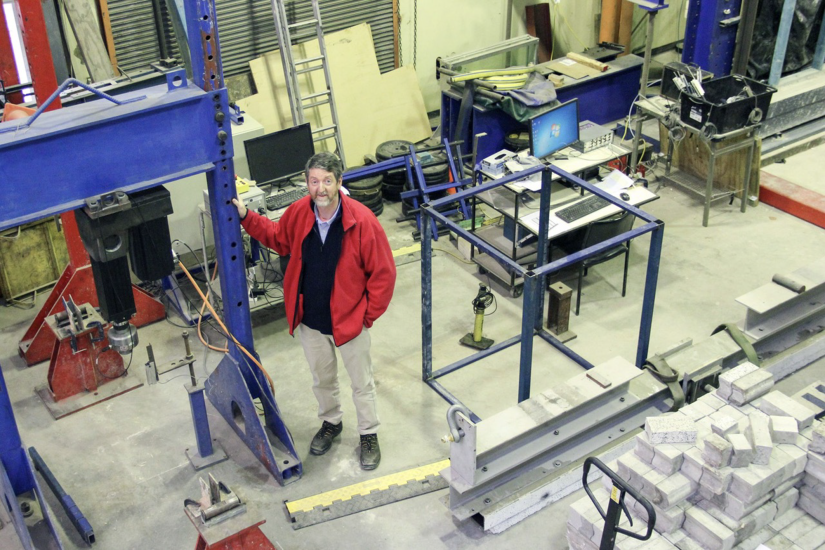Explosive Tests in the Outback Advance Counter-Terrorism Research
On an ordinary work day, Professor Stewart will usually be found at a desk – developing computer simulation models, and assessing terrorism risks and the cost-effectiveness of security measures.
But recently his research took him instead to the remote expanses of outback New South Wales to a test range operated by Ruruex, where he led controlled explosive field tests detonating three identical cars.
The Australian Research Council funded project was undertaken in order to provide vital data for refining computer simulation models that predict casualty risks and safe evacuation distances resulting from terrorist attacks involving vehicle-borne improvised explosive devices (VBIEDs).
Insights into Car Bomb Dangers
“My goal is to develop a comprehensive understanding of the safety risks associated with VBIEDs, both to people and to surrounding structures,” Professor Stewart said.
This is necessary for evaluating the efficacy of existing security protocols and identifying cost-effective methods to enhance societal protection against terrorist attacks.
Distinguished Professor Mark Stewart
During the explosive tests, the research team replicated the detonation patterns of typical terrorist car bombs.
To capture the resulting blast pressure and fragment data, the team employed a combination of advanced tools, including blast sensors, two drones, and eight high-speed video cameras.
The controlled explosions were particularly challenging to orchestrate, given the complexity and costs associated with such experiments.
However, the endeavour yielded unprecedented insights into the dangers posed by car bombs, including the potential for deadly fragments such as engine parts, wheels, and other shrapnel.
Enhancing Security Through Data
Due to security considerations, Professor Stewart refrained from disclosing specific findings.
“While I cannot discuss the exact outcomes of our research, it’s essential to understand the methodology behind these tests and their significance in advancing counter-terrorism efforts.
“This data is invaluable for calibrating and validating computer simulation models, thereby enhancing the accuracy of predictions regarding the potential impacts of VBIED attacks,” he said.
Contributing to Counter-Terrorism
One key aspect of the research lies in its potential to reshape policy and practice in the realm of security and law enforcement.
“The ability to collect real-world data through full-scale explosive testing of terrorist car bombs is a remarkable feat, underscoring UTS’s dedication to driving impactful research,” Professor Stewart said.
Professor Stewart says he anticipates the insights gained from the explosive tests will lead to adjustments in how authorities respond to bomb threats and how they protect both people and critical infrastructure.
With over 20 years dedicated to counter-terrorism research, Professor Stewart’s explosive tests augment his already significant contributions.
The persistent threat of terrorism and its ever-changing nature makes it imperative for authorities to have access to sophisticated tools and the latest research findings.
Distinguished Professor Mark Stewart
I’m pleased that our tests and research will now offer valuable data to guide and assist authorities in their planning and protection efforts,” he said.



